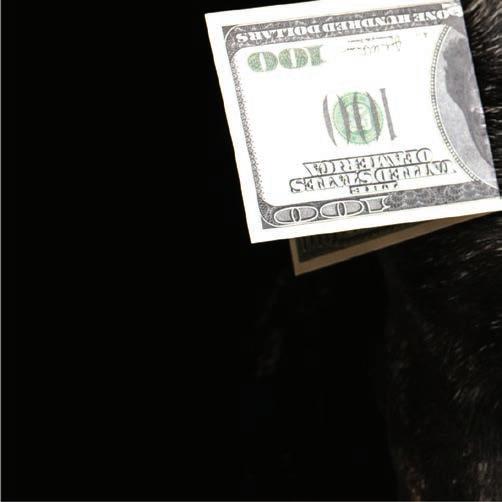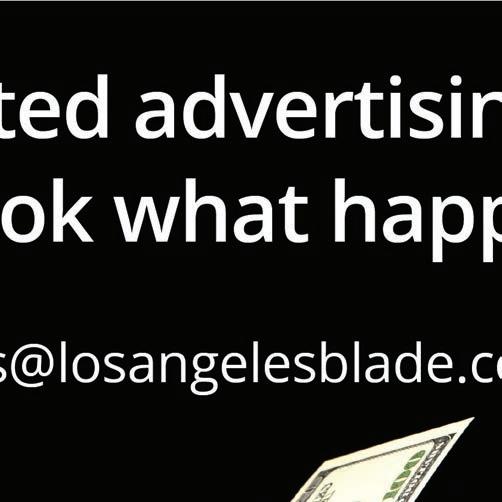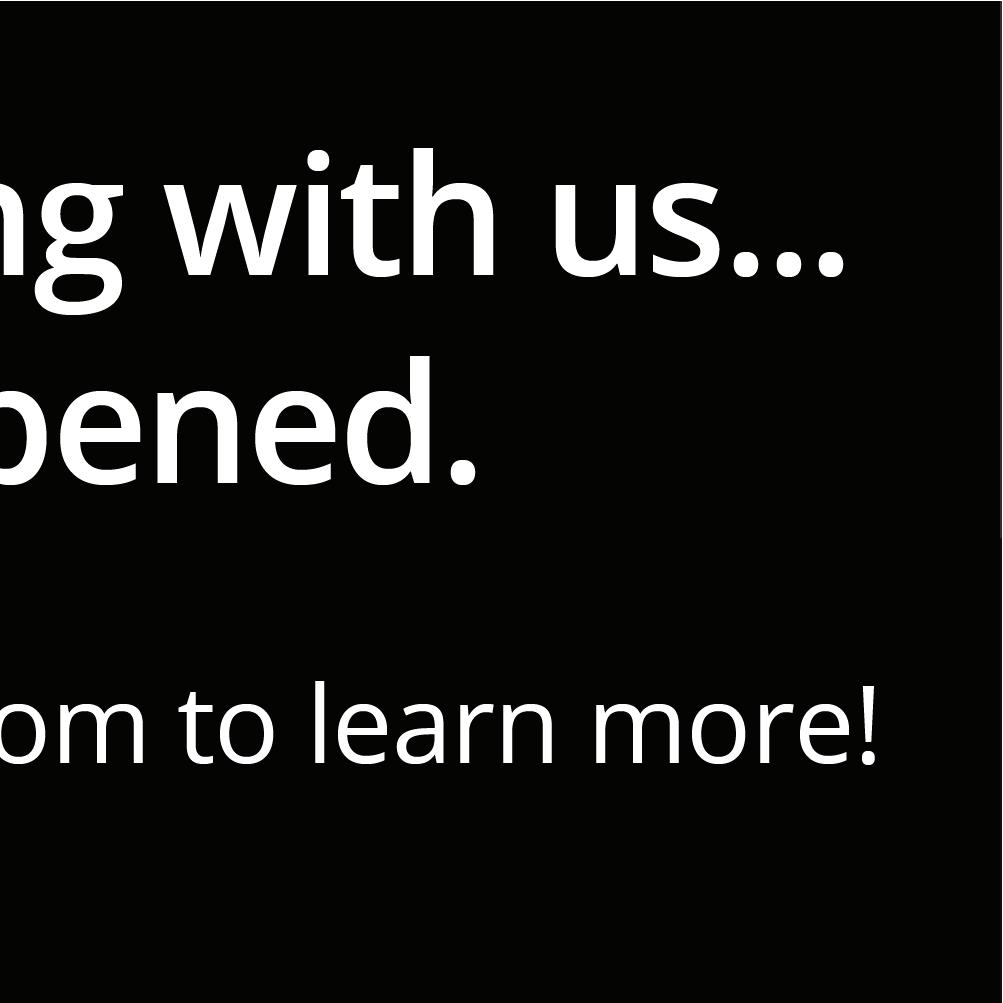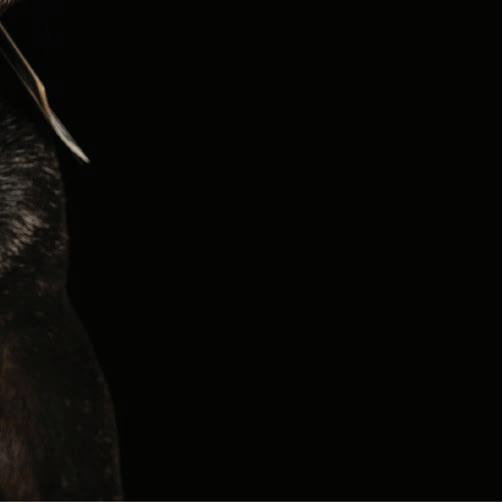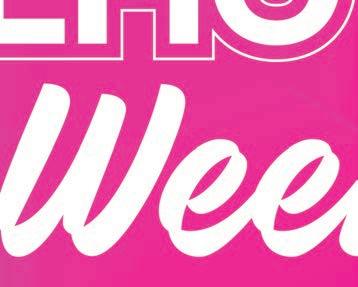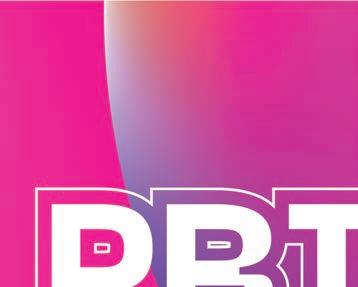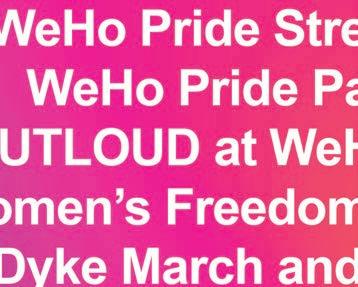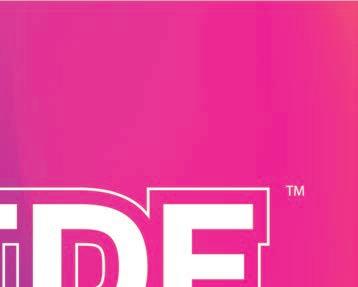
















Mas is interested in challenging assumptions in the west about sexuality in the Middle East
By GUEST COLUMNIST
Mas never meant to become a club promoter. He’s a broad man with a neat beard and twinkling eyes above a grin. After studying marketing and management in the U.S., he returned to the Middle East to help a Dubai company open luxury movie theaters across the region — including the first ever movie theater in Saudi Arabia.
When Covid-19 hit, theaters shuttered and the Lebanese economy crashed. Banks locked people’s money and so, starting over with nothing, he returned to Los Angeles, where he crashed on a friend’s couch for three months.
Ingenuity makes strange bedfellows. When Micky’s in WeHo offered Mas a bartending gig, he pitched the idea of taking over their marketing campaigns instead. Months later, after helping to get the word out about all sorts of different events and evenings, the club asked him if he’d consider hosting a night.
Mas is interested in challenging assumptions in the Pacific NorthWest about sexuality in the Middle East by hosting this night in the gay-famous WeHo community.
At the time, Mas says, there were no events for the gay Middle Eastern community in L.A., which includes Arabs, Persians and Armenians. The only other gay, Middle Eastern-oriented club was Club Nur, which is now permanently closed. So he thought of hosting his own.
“I wanted to create a space for us to listen to our music,” said Mas. “A place for us to be homesick.”
As a new promoter, the club didn’t offer Mas a weekend, but rather a Wednesday
night, which are notoriously difficult to sell. But the day gave Mas the name for his first foray into nightlife.
“They already call it hump day,” he said.
The associations: camels and being horny.
“Save a Camel, Hump a Habibi,” says the screen at the bar, over an image of a shirtless man surrounded by decorative lamps. “Habibi,” is a word in Arabic without an easy translation. The most direct is, “beloved,” or “my dear,” but the part that defies translation is how it means both “friend” and “lover.”
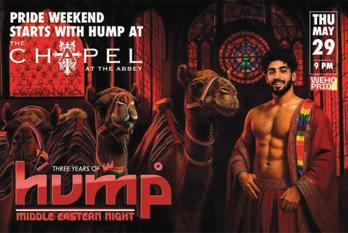
For the first Hump event, the team brought a real live camel to West Hollywood to stand out in front of Micky’s as a photo op. “To this day that’s what’s remembered,” he said.
People for the Ethical Treatment of Animals (PETA) got wind of what was happening and was not pleased — but Mas explains with an eye roll, that the camel was there for one hour, on an off night, with two trainers and was well looked after.
Mas then spoke about the club promotion politics of that night.
“I was a closeted college student in Louisi-
ana when 9/11 happened,” he said, sharing how his white American friends ran errands for him in the days following the attacks so he wouldn’t run the risk of harassment just for leaving the apartment.
“I still get searched in every airport,” he laughed.
In 2008, he went on America’s Got Talent to perform belly dancing. During his audition, he told the panel that he was there to show the peaceful side of the Middle East and a producer came to him afterward, thanked him for his bravery, and told him that unfortunately they would have to cut his segment from the show for venturing into politics.
“People assume the West is better for gays, but that’s not always true,” he said. “The first experience of homophobia I remember, coming from Lebanon, was while my family was on vacation in Italy.”
“There were five gay clubs in Lebanon growing up,” said Mas. “They were more hidden than here, but they were there.”
He recalls that in Dubai, gay parties happened all the time, but the addresses would be released last-minute to prevent them from being shut down — much like LA’s thriving queer warehouse party scene. People will always find a way.
“In Lebanon, growing up, there was not one type of music.” Lebanon is a crossroads of culture, and influences from Europe and the Middle East mingled freely. “You’d hear English, Spanish, French, and Turkish, even just in how people greeted each other in the street.”
The mix of tunes at Hump parties reflects
this vibrant music scene.
I attended Hump at Chapel at The Abbey in March, and the Persian holiday of Nowruz, the new year and start of spring.
“Tonight we’re celebrating the Persian people,” said Mas enthusiastically.
His framework is based on the question: who is being celebrated?
It’s a mixed crowd, and the music oscillates between American pop hits and Persian pop classics. “This one has 3 million Shazams,” exclaimed the similarly clueless white boy next to me when we look up the song that’s playing — which has inspired an eruption of passionate singing-along from the middle of the dance floor. My friend Ruben, who’s from Guatemala, twirls another man through classic Salsa steps, to the Persian beat.
“I don’t know a word, but it still makes me move my hips,” he laughed.
I was pleasantly surprised to find another friend, Ameed, working at the door. His social media feed is a continual anguished cry for his native Palestine, but here he sports a broad grin under his keffiyeh, welcoming people in.
“I never thought something like this could exist,” he said. “I was nervous my first time coming,” Ameed explains how coming out as gay to his family led him to take a step back from his own culture, even to see it as bad or bullying. “Every gay Arab guy has some sort of trauma,” he says. “But here I get to enjoy the parts of my culture I enjoy, while still feeling safe — and I get to meet other people in the same boat.”
New ‘Party with a Purpose’ lesbian brunch to be hosted at Sorry Not Sorry Lez Brunch is coming to Sorry Not Sorry L.A. on May 17 with bottomless mimosas and games
By GISSELLE PALOMERA
Jessica Wagstaff is the founder of Homology L.A. and most recently partnered up with The Queer 26, a nonprofit platform for QTBIPOC creatives, to produce Lez Brunch. The brunch will be hosted on May 17, from noon to 4p.m., at Sorry Not Sorry. The 4,000 sq-ft event space is a well-respected wine-forward, cocktail bar in Los Angeles that also hosts lots of other LGBTQ events, drag shows and more, throughout the year.
Wagstaff believes it is important to not only host this event, but also to make it as safe and inclusive as possible. They have also incorporated a community outreach aspect to this
event by giving back to their community by donating proceeds to non-profit and mutual aid organizations.
Everything down to the ticketing site, is queer and inclusive.
“The ticketing website allows attendees to enter in their name which may differ from their legal name, which I think is a really important aspect right off the top of the bat, they know we care about who they are right at the start of their experience with us,” said Wagstaff. “In fact the ticketing website is the only platform that is queer owned and operated in the world, it’s called Sickening Events.
So we know that it’s also benefiting our community.”
The performers are also part of the LGBTQ+ community and Wagstaff believes that by having a line-up of performers and entertainers who mirror and represent the community, it allows people to feel safe, heard and seen.
“I’ve always been very passionate about having a lineup that directly mirrors our community from BIPOC, trans, queer, non-binary, etc,” said Wagstaff.
Wagstaff is also a licensed security guard who says safety and security is on the top of their priorities when it comes to hosting these
events.
“I will have a code of conduct signage and training at the front door which will be promoted by wait staff, restaurant management, plus all Lez Brunch talent and staff,” said Wagstaff.
The event will be hosted by Ruthie Alcaide who is a TV personality who has been a contestant on The Real World: Hawaii, a finalist on Battle of the Sexes and All Stars 1, and she also competed on Battle of the Sexes 2, The Gauntlet 2, and The Duel II.


The parade will also pay tribute to the city’s first responders, relief organizations, agencies, officials and others who stepped up during the January fires
By GISSELLE PALOMERA
The theme for the parade set to take place on Sunday June 8, at 11 a.m., will fittingly be “Pride Marches On,” and this year’s parade grand marshals will be Niecy Nash-Betts and wife Jessica Betts, Andrew Rannells, and Trino Garcia and Adam Vasquez, who are also known as ‘TrinoxAdam.’
Rannells, a Grammy-winning, two-time Tony-nominated actor celebrated for his work on stage, screen, and television, is this year’s LA Pride Celebrity Grand Marshal.
“I’m truly honored to be this year’s Celebrity Grand Marshal of LA Pride,” said Rannells. “I don’t take it lightly and I just hope in some small way I can reflect the strength and resilience of the queer community, especially in times like these.”
Rannells made his TV directorial debut with Amazon’s “Modern Love” and is widely recognized for his role as Elijah Krantz on HBO’s “Girls,” which garnered a Critics Choice nomination. He recently appeared on Hulu’s “Welcome to Chippendales” and Showtime’s “Black Monday,” earning him yet another Critics Choice nomination. Rannells is also an author, director and Broadway actor.
Nash-Betts, one-half of this years Vanguard Marshals, is a multi-talented Emmy Award-winning actress, producer and director who has captivated audiences on many projects across the big screens. Soon, she will be making a big appearance starring opposite Kim Kardashian, Naomi Watts, Sarah Paulson, Teyana Taylor and Glenn Close, in Ryan Murphy’s “All’s Fair” Hulu TV series about an all-female legal firm.
Chicago native Betts will join her wife Nash-Betts as the other half of this years Vanguard Grand Marshal’s of the parade. Betts is an acclaimed singer-songwriter known for her original electric and acoustic rock and soul music. The two have been married since 2020 and in 2022, they made history as the first same-sex couple to grace the cover of Essence magazine, receiving a nomination for a GLAAD Media Award.
“We are thrilled to have Niecy Nash and Jessica Betts as
this year’s Vanguard Grand Marshals,” said Gloria Bigelow, CSW board member. “As individuals and as a couple, they exemplify the beauty of living authentically and embracing love in all its forms. Their presence serves as a shining example for our community, reminding us to celebrate who we are, love fiercely and never back down from our Pride.”
TrinoxAdam will be this years Community Grand Marshals. The two are a loving gay couple who have dazzled the queer, Latin community with their content showcasing how they reclaim the cholo, or ‘xolo’ identities. They went viral on social media after sharing a romantic kiss on a bridge overlooking the 110 Freeway in Los Angeles. Now famous on social media, the two make content about their love, challenging traditional perceptions of masculinity, sexuality and Chicano culture.
“Pride is about loving yourself and accepting yourself for who you truly are,” said Trino Garcia and Adam Vasquez. “Being this year’s LA Pride’s Community Grand Marshals is the biggest honor and our greatest accomplishment, knowing we’ve made an impact and helped people find acceptance within themselves and finally feel the true meaning of Pride.”
This year, the parade will also pay tribute to the city’s first responders, relief organizations, agencies, officials and others who stepped up during the fires that devastated Altadena and Pacific Palisades, in a special “Heroes of the Wildfires” section in the lineup.
“This year LA Pride marks a pivotal moment for both the Los Angeles and LGBTQ communities,” said Gerald Garth, CSW board president. “Despite facing unimaginable challenges, our community has always emerged stronger. This year’s theme, ‘Pride Marches On,’ symbolizes the strength of our community, and no matter the fire, hate or fear, Pride will always forge ahead. We look forward to embodying this spirit while celebrating resilience, hope and togetherness.”
The parade will be hosted by “Good Morning America”

Saturday and Sunday co-anchor and ABC News transportation correspondent Gio Benitez and “ABC7 Eyewitness News” anchors Ellen Leyva and Coleen Sullivan.
After the Parade, LA Pride will host LA Pride Village on Hollywood Boulevard. Now in its fourth year, this free street festival will feature programming on two stages, welcome over 80 booths with local vendors and nonprofits, dozens of sponsor activations, giveaways, games, scores of food trucks, and two 21+ full-service bars.
For the third year in a row, LA Pride will also be featuring “Ballroom Battle,” the voguing competition created by New York City’s Black and Brown LGBTQ+ communities made famous by the documentary, “Paris is Burning,” Madonna, and the FX show “Pose.” LA’s premiere ballroom houses such as House of Miyake Mugler, House of Ninja, and House of Gorgeous Gucci will compete in front of celebrity judges, including Margaret Cho, who will also be in the parade, riding with longtime LA Pride alumni Project Angel Food.
A curated art exhibition called “Bring the T” will feature works in multiple media by trans artists that represent and explore themes around trans discrimination and erasure but also activism, determination and fearlessness.
The parade is set to broadcast live on Sunday, June 8, from 11 a.m. to 1 p.m. PDT on ABC7/KABC-TV Los Angeles.
The live broadcast will include comprehensive coverage from ABC7 news reporters David González, Sophie Flay and Kevin Ozebek, who will be reporting directly from the parade route, capturing all the festivities.
This year’s theme is ‘Power of Community’
By GISSELLE PALOMERA
Long Beach Pride 2025 will take place on May 17 and 18 at Marina Green Park, emphasizing focus on grassroots organizations and local community performers.
“Long Beach Pride has always been more than just a festival—it’s a movement,” said Elsa Martinez, interim president of LB Pride. “This year, more than ever, we’re celebrating the strength, creativity, and unity of our local community.”
Martinez also notes that all the ticket sales directly go toward funding on-the-ground resources.
“As a nonprofit organization, every aspect of the Pride Festival—from ticket sales to vendor partnerships—directly funds our work in the community,” noted Martinez. “This is a festival with purpose.”
As LB Pride amps up for its 42nd annual celebration, the organization has stated that this year marks the return to the roots of Pride. LB Pride stated that they are committed to emphasizing what makes the local community so special and spotlighting local performers, musicians and entertainers.

The organization has also stated that they are committed to ‘justice, inclusion, and the celebration of queer joy.’
“Our strength has always been our solidarity,” said Martinez. “This year’s festival is a reminder of what we can achieve when we lift each other up.”
This year, the main stage will feature a lineup of pop, Hip-hop and Latin talent.
Performers include HYM the Rapper, George Michael Reborn Tribute, Tori Kay, Jewels Drag Show Extravaganza, Secret Service, Tiancho and music mixes by DJ BSelecta, DJ Icy Ice and DJ 360.
For updates, tickets, and volunteer opportunities, please visit https://longbeachpride.com and follow @LongBeachPride on social media.


By LOU CHIBBARO JR. | lchibbaro@washblade.com
Jeanine Pirro, the controversial Fox News host and commentator appointed by President Donald Trump on May 8 to become interim United States Attorney for the District of Columbia has a little-noticed record of partial support for gay rights while mostly opposing transgender rights.
She expressed support for gay rights during her tenure as a prosecutor and candidate for public office in New York State beginning in 2000, media reports show.
According to news media reports at that time in New York, Pirro actively supported the approval by the New York State Legislature of a hate crimes law that included sexual orientation as a protected class in 2000. Press reports show she also spoke out in support for anti-discrimination protections for LGBTQ people during her unsuccessful election campaign for State Attorney General in 2006.
Although she supported civil unions rather than legal marriage for same-sex couples, Pirro spoke out strongly against a proposed federal constitutional amendment to ban same-sex marriage, press reports show. However, media reports also show she supported the federal Defense of Marriage Act passed by Congress, which defined marriage as a union between a man and a woman.
Reports show that in 2006 she acknowledged participating in both a Pride parade and a fundraising event organized by Log Cabin Republicans, the LGBTQ GOP group.
Other media reports show that Pirro called on the National Collegiate Athletic Association (NCAA) to ban transgender women from competing in women’s sports
“Women are being condemned, disavowed, and erased by allowing transgender women to compete with biological women in sports,” she stated on one of her Fox News talk shows. “This is the ultimate elimination and subjuga-
tion of women in our society,” she stated on that show.
In his decision to appoint Pirro as Acting U.S. Attorney for D.C., which by law is a temporary position, Trump has not said whether he plans to nominate Pirro for the permanent D.C. U.S. Attorney position.
Trump’s decision to name Pirro as acting U.S. Attorney came after congressional Democrats as well as some Republicans made it clear they would not support Ed Martin, Trump’s earlier appointment as acting D.C. U.S. Attorney for the permanent U.S. Attorney position.
The Washington Post reports that congressional Democrats have raised strong concerns about Pirro’s ability to serve as D.C.’s U.S. Attorney based, among other things, on her controversial statements as a Fox News talk show host.
The Post reports that she was among the Republicans who disputed the 2020 presidential election results, noting she was named as one of the Fox News commentator defendants in a defamation lawsuit filed by a company producing voting machines that accused Pirro and others with making false statements that faulty voting machines played a role in Trump receiving fewer votes than he actually received when he lost to Joe Biden in the 2020 election.
Congressional Democrats are also raising questions about whether Pirro has sufficient experience to serve as U.S. Attorney based on her past role as three-term Westchester County, N.Y. District Attorney, the Post reports. The Democrats reportedly are claiming Pirro lacks experience as a prosecutor in federal cases, which the D.C. U.S. Attorney prosecutes as well as local D.C. cases.
Trump, in a social media post, called Pirro a “powerful crusader for victims of crime.” Several prominent Republican U.S. senators also
expressed strong support for Pirro’s appointment.
“Jeanine Pirro has had a long and storied career as a prosecutor, and she is a great choice by [Trump] to serve as U.S. Attorney for D.C.,” the Post quoted Sen. Thom Tillis (R-N.C.) as saying.
Pirro served as a judge in Westchester County, which is a suburb of New York City, before being elected as the county’s district attorney in 1993. She held that position until 2005, when she announced her GOP candidacy for New York’s U.S. Senate seat held then by Democrat Hillary Clinton, which was up for election in 2006.
The Post and other media outlets report conservative Republican leaders pressured Pirro to drop out of the U.S. Senate race on grounds that her moderate positions on a number of issues, including her support for a woman’s right to choose an abortion, would alienate conservative voters.
After withdrawing her candidacy for the Senate, Pirro became a candidate for the New York State Attorney General’s position.
She won the GOP nomination for that position and emerged, according to political observers, as a true “moderate” Republican on issues including her support for LGBTQ rights protections in employment and LGBTQ-inclusive hate crimes laws. In November 2006 Pirro lost the election to Democrat Andrew Cuomo.
Among the issues that hurt her campaign, media reports show, was her former husband’s conviction in 2000 on federal conspiracy and tax evasion charges following his tenure as Trump’s real estate attorney.
He was sentenced to 29 years in prison but served just 11 years before Trump pardoned him at the end of the last year of Trump’s first term as president. According to media reports, Jeanine Pirro lobbied Trump to pardon her
ex-husband.
Wikipedia reports that in 2013 Pirro interviewed on her talk show William Owens, an official with the anti-LGBTQ National Organization for Marriage, which opposed same-sex marriage. But the Wikipedia write-up doesn’t say whether Pirro expressed her own views on that subject during the interview.
However, Wikipedia reports that in 2021 Pirro attended Log Cabin Republicans’ Spirit of Lincoln Gala, the group’s largest annual fundraising event.
Andrew Minik, president of Log Cabin Republicans of D.C., said the LGBTQ GOP group strongly supports President Trump’s decision to appoint Pirro as interim U.S. Attorney for D.C.
“Judge Pirro is a longtime friend and ally of Log Cabin Republicans, a fierce advocate for law enforcement officers, and defender of the rule of law,” Minik told the Blade in a statement. “Her appointment marks a turning point in restoring order and ending the culture of leniency that has put D.C. residents at risk,” he said.
The Human Rights Campaign, the nation’s largest national LGBTQ advocacy organization, considers Pirro’s appointment “a slap in the face of justice,” according to Brandon Wolf, the group’s national press secretary.
“Given her insulting comments about transgender people, the people of D.C. cannot count on Pirro to protect the rights of all of our residents and visitors,” Wolf said in a statement to the Blade.
“As U.S. Attorney, she would be responsible for prosecuting hate crimes and civil rights violations but based on her time as a Fox News talking head, she can be expected to advance the administration’s anti-LGBTQ+ agenda, including non-enforcement of critical civil rights protections,” Wolf said.
The cuts to federal spending in a reconciliation proposal published on Monday by the U.S. House Ways and Means Committee’s Republican majority could jeopardize critical programs that disproportionately serve LGBTQ communities, the Human Rights Campaign warned.
As lawmakers were set to convene for a markup on Tuesday, the country’s largest LGBTQ advocacy group said in a press release that the bill would “pose significant threats” particularly for those that might be “low-income, living with HIV, or facing food insecurity.”
HRC added that conservative members have added provisions that would (1) prohibit the use of federal Medicaid and CHIP funding to support guideline-directed, medically neces-
sary healthcare interventions for transgender youth (2) prevent “states from defining that care as ‘essential health benefits’ for transgender people of all ages,” and (3) block funding for health providers like Planned Parenthood that “have worked diligently to create welcoming, affirming environments for the LGBTQ+ community and that are committed to reproductive freedom and providing care to all who need it.”
Since reconciliation is carved out as an exemption to the Senate filibuster, which typically requires a 60-vote threshold for legislation to pass, Republicans would need only a simple majority in the upper chamber.
In a statement, HRC President Kelley Robinson said:“People in this country have been clear — they want policies and
solutions that make life better and expand access to the American Dream. Instead, anti-equality lawmakers drafted a handout for billionaires built on the backs of hardworking people — with devastating consequences for the LGBTQ+ community.
“Proposed cuts to programs like Medicaid and SNAP or resources like Planned Parenthood clinics, all of which disproportionately support LGBTQ+ Americans, are not just numbers on a page. They would mean families forced to choose between seeing a doctor and paying the rent. They would mean people forced to skip check ups and testing. They would mean kids missing meals.”
CHRISTOPHER KANE

































































































































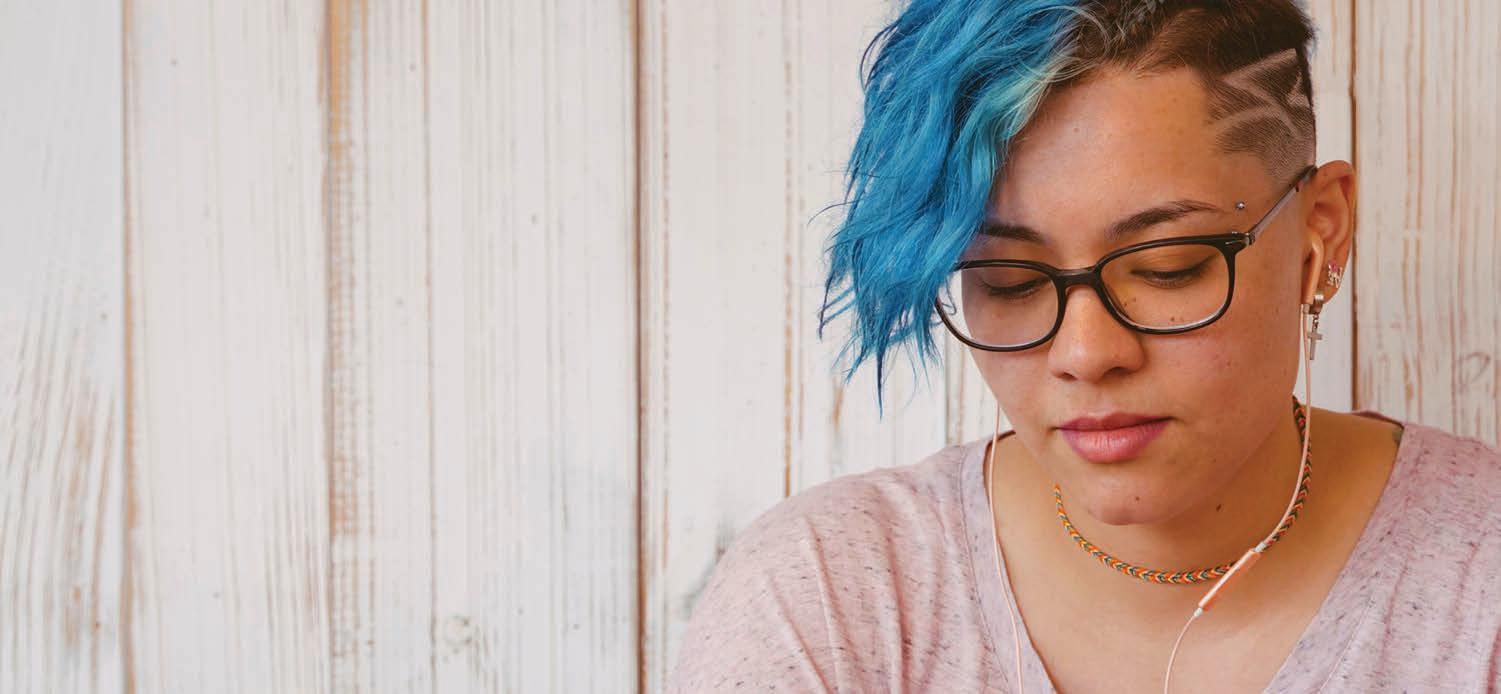








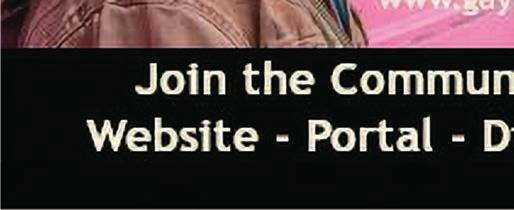


The College of Cardinals last week elected Cardinal Robert Prevost from Chicago as the Catholic Church’s next pope.
Leo XIV’s election took place less than three weeks after Pope Francis died at Casa Santa Marta, his official residence at the Vatican. The conclave to choose his successor began on Wednesday.
Leo XIV, who was born in Chicago in 1955, is the first American pope.
Leo XIV was bishop of the Diocese of Chiclayo in Peru from 2015-2023. Francis made him a cardinal in 2023
“We salute the appointment of the new Pope Leo XVI,” said the U.S. Embassy in Peru on X. “A celebration for the world’s Catholics, and a joy especially shared between the American people and the Peruvian people. From Chicago to Chiclayo.”
U.S. Rep. Robert Garcia (D-Calif.), a gay man of Peruvian descent, also congratulated Leo XIV.
“As a Catholic and Peruvian American, I wish Pope Leo XIV strength as he steps into his role as a global and spiritual leader,” said the California Democrat on X. “He has demonstrated that he believes in justice for the poor and immigrants. May his leadership reflect these ideals as he spreads peace across the world.”
Francis died on April 21 at Casa Santa Marta, his official residence at the Vatican. The conclave to choose the Argentine pontiff’s successor began on Wednesday.
The Vatican’s tone on LGBTQ and intersex issues softened under Francis’s papacy, even though church teachings on homosexuality did not change.
Francis, among other things, described laws that criminalize consensual same-sex sexual relations as “unjust” and supported civil unions for gays and lesbians. Transgender people were among those who greeted Francis’s coffin at Rome’s St. Mary Major Basilica before his burial on April 26.
The New York Times reported Leo XIV in a 2012 speech to bishops specifically cited “homosexual lifestyle” and
“alternative families comprised of same-sex partners and their adopted children” when he said Western media and popular culture has promoted “sympathy for beliefs and practices that are at odds with the gospel”
Marianne Duddy-Burke, executive director of DignityUSA, a group that represents LGBTQ Catholics, traveled to Rome for the conclave.

She told the Washington Blade in a text message from St. Peter’s Square shortly after Leo XIV’s election that she “heard him speak” last October and “found him thoughtful and gently challenging.”
“[He] hasn’t said a lot since early 2010s. [I] hope he has evolved,” said Duddy-Burke. “His commitment to synodality is a hopeful sign.”
Her group later issued a statement.
“This election appears to signal a willingness to continue building on Pope Francis’s commitment to synodality and social justice,” said DignityUSA. “We pray that the needs of those whom our church has historically marginalized, in-
cluding LGBTQ+ people and their families, will continue to be heard and addressed by the Vatican and other church leaders.”
Francis DeBernardo, executive director of New Ways Ministry, a Maryland-based LGBTQ Catholic organization, in a statement said there is “a special pride in having the first pope from the United States, his longtime ministry in Latin America most likely had an equally formative influence on his spirituality and approach to church issues.” DeBernardo, however, criticized Leo XIV’s 2012 comments.
“We pray that in the 13 years that have passed, 12 of which were under the papacy of Pope Francis, that his heart and mind have developed more progressively on LGBTQ+ issues, and we will take a wait-and-see attitude to see if that has happened,” he said.
“We pray that as our church transitions from 12 years of an historic papacy, Pope Leo XIV will continue the welcome and outreach to LGBTQ+ people which Pope Francis inaugurated,” added DeBernardo. “The healing that began with ‘Who am I to judge?’ needs to continue and grow to ‘Who am I, if not a friend to LGBTQ+ people?’”
DignityUSA agreed.
“We express concern with the former Cardinal’s statements — as reported in the New York Times — in a 2012 address to bishops, where he stated that Western news media and popular culture fostered ‘sympathy for beliefs and practices that are at odds with the gospel’ including the ‘homosexual lifestyle’ and ‘alternative families comprised of same-sex partners and their adopted children.’” We note that this statement was made during the papacy of Benedict XVI, when doctrinal adherence appeared to be expected,” said the organization in its statement. “In addition, the voices of LGBTQ people were rarely heard at that level of church leadership. We pray that Pope Leo XIV will demonstrate a willingness to listen and grow as he begins his new role as the leader of the global church.”
MICHAEL K. LAVERS
Former Uruguayan President José “Pepe” Mujica died on Tuesday. He was 89.
Mujica, a farmer, was a member of Tupamaros National Liberation Movement, a leftist guerrilla group that carried out bank robberies and bombings and kidnapped politicians and businessmen in the South American country during the 1960s and 1970s.
Mujica spent nearly 15 years in prison. The rightwing military dictatorship that governed Uruguay from 1973-1985 tortured him and held him in solitary confi nement for a decade.
Mujica in 1989 joined the Movement of Popular Participation, a party that is part of the Broad Front, a leftist political coalition. Mujica was Uruguay’s president from 2010-2015.
Laws that extended marriage rights to same-sex couples and legalized abortion took eff ect in 2013 and 2012 respectively. Mujica in 2013 also signed a law that
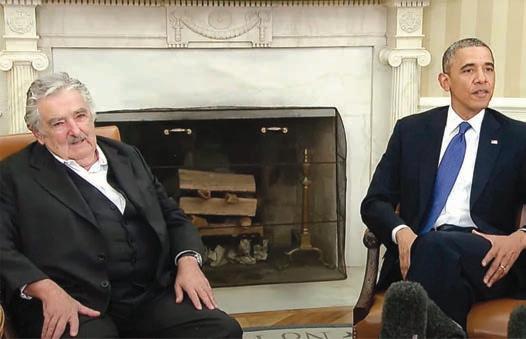
legalized recreational marijuana in Uruguay.
Mujica earlier this year announced he would not undergo further treatment for esophagus cancer that had spread to his liver. The AP notes he died in his small house outside of Montevideo, the Uruguayan capital.
“With profound pain we announced that our friend Pepe Mujica has died,” said Uruguayan President Yamandú Orsi, who currently leads the Broad Front, on X. “President, activist, guide, and leader. We are going to miss you very much, dear old man. Thank you for everything that you gave us and for your profound love for your people.”
Esteban Paulón, a gay congressman in neighboring Argentina, celebrated Mujica as a “guide” for “Latin American progressivism.”
“He made humility, honesty and austerity his hallmarks,” said Paulón on social media.
MICHAEL K. LAVERS








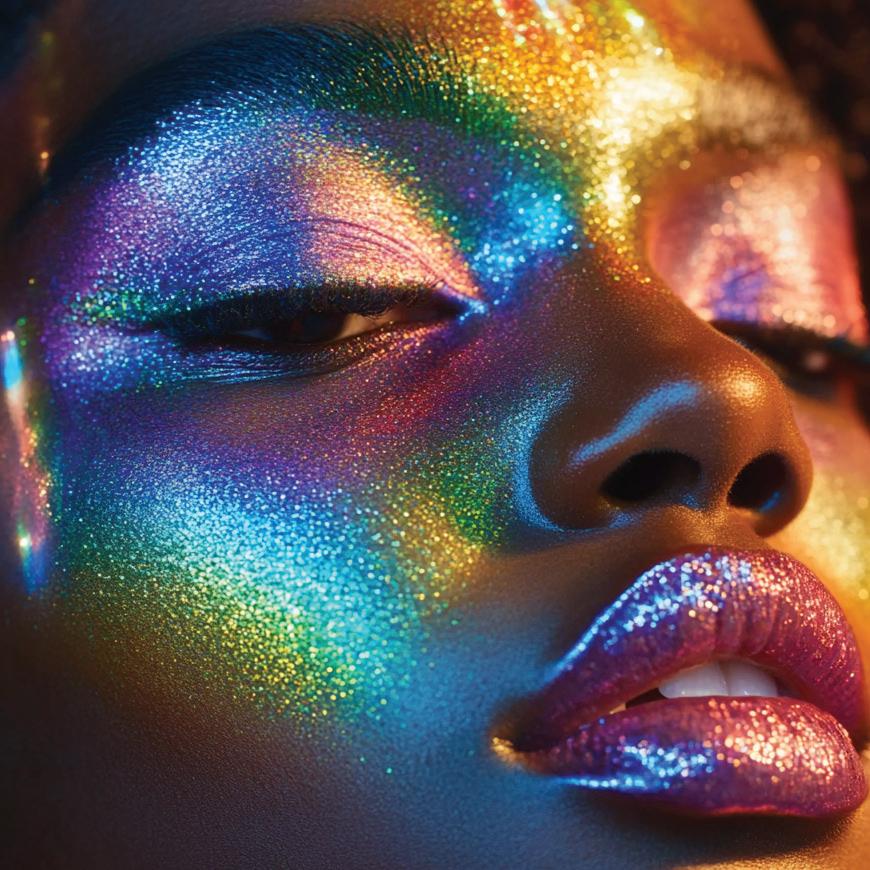
JOHN M. ERICKSON is a West Hollywood City Councilmember.
‘West Hollywood isn’t just coasting on its values—we’re acting on them’
West Hollywood has always stood as a beacon for LGBTQ people, for the marginalized—for anyone chasing a place to be safe, seen, and supported. But that promise is slipping away. If people can’t afford to live here, then West Hollywood becomes a symbol, not a sanctuary.
The housing crisis gripping Southern California is particularly acute in LGBTQ communities. Whether it’s trans women of color pushed into homelessness, queer youth aging out of foster care, or seniors on fixed incomes being priced out of the very neighborhoods they helped shape—our inability to build enough housing is deepening the inequality we claim to fight against. Our failure to build enough housing is not just a policy gap—it’s a moral one.

We haven’t kept up with demand, and we haven’t met the needs of the vulnerable communities we claim to champion.
That’s about to change.
On Monday, May 5th, I’m introducing a sweeping housing reform package aimed at one thing: making it easier, faster, and cheaper to build homes in West Hollywood. Not just luxury condos—homes people can actually live in. That means slashing red tape. Cutting delays. Dismantling outdated rules that stall projects and drive up rents.
PHONE 310-230-5266
E-MAIL arodriguez@losangelesblade.com
INTERNET losangelesblade.com
PUBLISHED BY Los Angeles Blade, LLC
PUBLISHER
ALEXANDER RODRIGUEZ
arodriguez@losangelesblade.com, 310-230-2077 x8080
EDITORIAL
EDITOR
GISSELLE PALOMERA
gpalomera@losangelesblade.com, 310-230-5266 x 9460
NATIONAL EDITOR
KEVIN NAFF
kna @washblade.com, 202-747-2077 x8088
CONTRIBUTING WRITER
KAREN OCAMB
karenocamb@losangelesblade.com
CONTRIBUTORS
MICHAEL K. LAVERS, TINASHE CHINGARANDE, CHRISTOPHER KANE, JOHN PAUL KING, LOU CHIBBARO JR., SUSAN HORNIK, JOE REBERKENNY, DANIEL ITAI, ISAAC AMEND, PETER ROSENSTEIN, TERRI SCHLICHENMEYER, JOE PHILLIPS, ANKUSH KUMAR, ESTEBAN RIOSECO, SAM KISIKA, ELVIS KAWEDO, HENRY CARNELL, DAWN ENNIS
SALES & ADMINISTRATION
SALES EXECUTIVE
SHANA WONG SOLARES swong@losangelesblade.com, 808-386-0872
MARKETING DIRECTOR
STEPHEN RUTGERS
srutgers@washblade.com, 202-747-2077 x8077
NATIONAL ADVERTISING
RIVENDELL MEDIA
sales@rivendellmedia.com, 212-242-6863
ADMINISTRATION
PHILLIP G. ROCKSTROH prockstroh@washblade.com, 202-747-2077 x8092 CREATIVE DESIGN/PRODUCTION
MEAGHAN JUBA production@azercreative.com
DISTRIBUTION
This isn’t theoretical. It’s personal.
As a gay man and a progressive policymaker, I know what it means to live at the intersection of identity and action. I carry the legacy of those who fought for a seat at the table— and the duty to do more than just sit there. Right now, that means confronting a housing system that’s failing the very people we claim to protect.
When West Hollywood became a city in 1984, we inherited density. We had walkable neighborhoods, apartment buildings, and a diverse housing stock. But we froze. For 40 years, our zoning has barely moved.
In the last 25 years, WeHo has actually decreased in population. Meanwhile the number of Americans who identify as LGBTQ+ has more than tripled in that same amount of time.
This isn’t about bulldozing neighborhoods or silencing community voices. It’s about fixing a broken system—one built for a different era and completely out of step with the urgency of now. It’s time to stop confusing progressive branding with progressive outcomes. We need real reform: faster processes, smarter regulations, and yes—political courage.
Will this fix everything overnight? No. But it will send a clear message: West Hollywood isn’t just coasting on its values—we’re acting on them.
Housing justice is LGBTQ+ justice. It’s racial justice, economic justice, and generational justice. We don’t get to call ourselves a queer haven if only the rich and lucky can live here. The West Hollywood of the future must make room for drag artists, Trader Joe’s cashiers, trans youth, longtime renters—and anyone else trying to build a life with dignity.
A city that flies the Pride flag can’t stand by while its most vulnerable residents are priced out and pushed out. We owe the next generation more than just slogans and rainbows. Let’s leave them keys.
CHRISTOPHER JACKSON, 562-826-6602 All material in the Los Angeles Blade is protected by federal copyright law and may not be reproduced without the written consent of the Los Angeles Blade. e sexual orientation of advertisers, photographers, writers and cartoonists published herein is neither inferred nor implied. e appearance of names or pictorial representation does not necessarily indicate






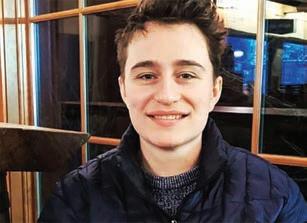
is a writer based in the D.C. area. He is a transgender man and was featured in National Geographic’s ‘Gender Revolution’ documentary. He serves on the board of the LGBT Democrats of Virginia. Contact him at isaacamendwrites@ gmail.com or on Instagram at @literatipapi
Lately I’ve sense a deep seated antipathy in the queer population toward fixing systemic issues that sabotage the wellbeing of the queer population. Much of this antipathy is centered around race: wealthy cisgender (and mostly white) gay men feel that much of their needs are taken care of, with the exception of the Trump administration potentially taking away their right to marry. Then, all of a sudden, when reports come out that gay marriage is in jeopardy, these wealthy gay men rally around the flag and start to care. But for the most part, they are busy with their well-off lives renting penthouses in Logan Circle or Dupont, going to mostly all-white gay toga parties, finding casual hookups on Grindr. Their lives are not entirely full of discrimination. They work in offices that celebrate, or at least tolerate, their identity. Because to these office places, a capable, well-dressed, cisgender gay man who knows his business field and can present tidily well is no threat to their corporate good or corporate advance.
White cis gay men who come from lower socioeconomic backgrounds face a larger struggle: They might not be able to afford the wardrobe that fits an elite corporate culture; some middle or lower class folks can’t fit this mold. Moreover, they might not harbor the educational background to fit such job titles at Goldman Sachs, after all, Goldman
is looking for Harvard MBAs. Indeed, they are looking for top-tier MBAs — a credential that very few queer people live up to. With poverty and lower socioeconomic class pervading the queer community, it’s hard to find gay or lesbian or — god forbid — trans folk who fit McKinsey’s mold and ethos of work.
Queer people who don’t acquiesce to corporate culture — people who don’t have Ivy League degrees or the best MBA grads from Wharton or Yale or Harvard tend to apply to other jobs. At the lower end of the ladder, queer people who don’t strive to be top tier consultants work barista jobs or retail. I mention “lower end of the ladder” not to deride queer people who choose to be baristas or work in retail — it is their choice, and amazing pro-BLM and pro-Palestine and pro-working class movements originate from these kinds of work places.
Yet other queer people settle for middle class jobs. Trans men who pass extraordinarily well as men become Realtors or insurance agents. Some even more become entertainers and singers and DJs; there are ample jobs available for trans people. Some drag queens or trans women like Laverne Cox shine bright on the national stage and become actresses that represent gender diverse women. And that is good for them.
What I’ve found though is much antipathy toward our job struggle. Not necessarily antipathy from the queer population itself, but antipathy from employers who are hesitant to hire a trans man or a trans man who doesn’t pass well. Trans men who don’t pass are an enormous issue to employers. Employers just don’t like non-passing trans people. They pose a liability to them. They make companies feel uncomfortable. It’s going to take years–if not decades–for companies to just “chill” about gender nonconformance. Trans people harbor many excellent minds, be it in mathematics, physics, English, computer science, or the arts.
It’s time that corporate America take a serious look at their queer workforce. Firing or denying someone employment because they don’t fit a certain gender mold is a cruel act. And this cruel act has gone on for far too long. There are some tales of getting it better. Most notably tech companies like Google or Amazon hiring gender nonconforming computer engineers to get the job done. They enforce an environment of respect and mutual aid. This trend needs to continue and grow.
If it doesn’t then the trans workforce is left feeling bereft, lost in translation. This can’t continue forever. It’s time for change.
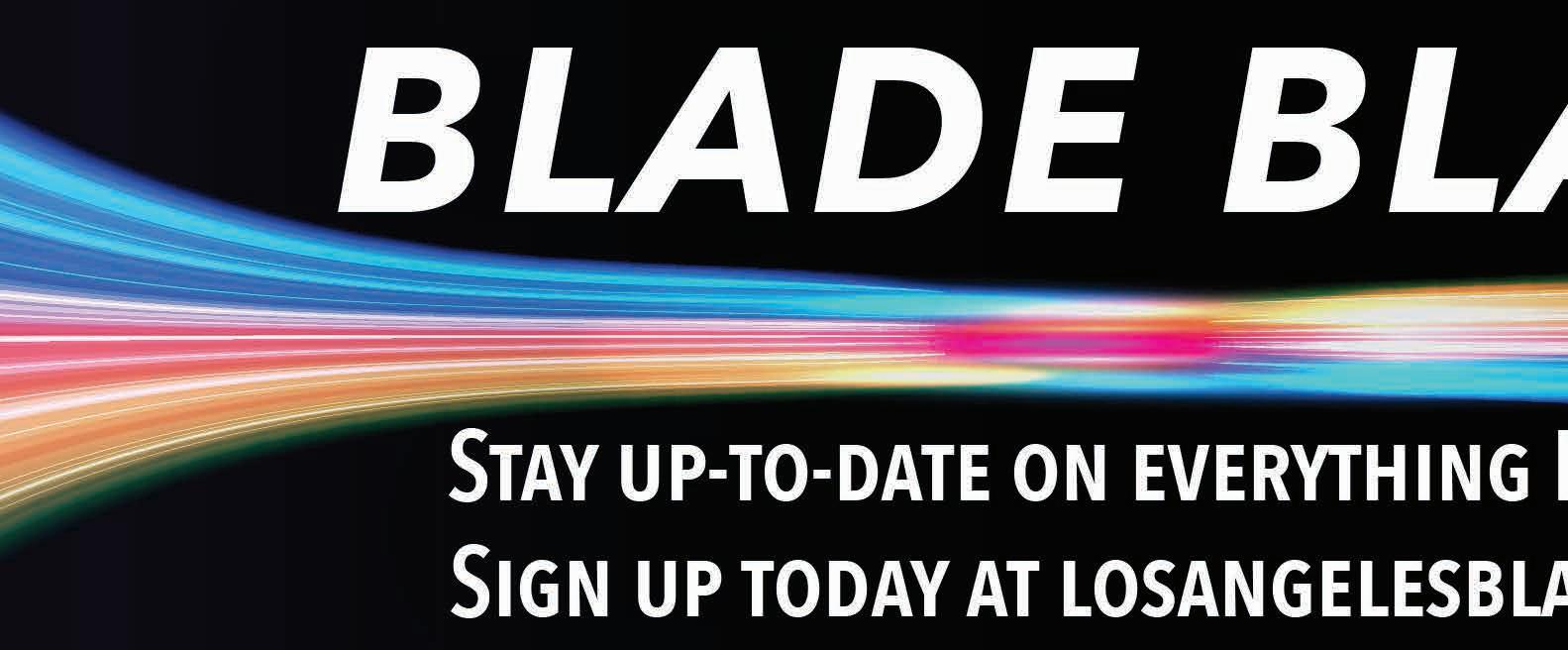
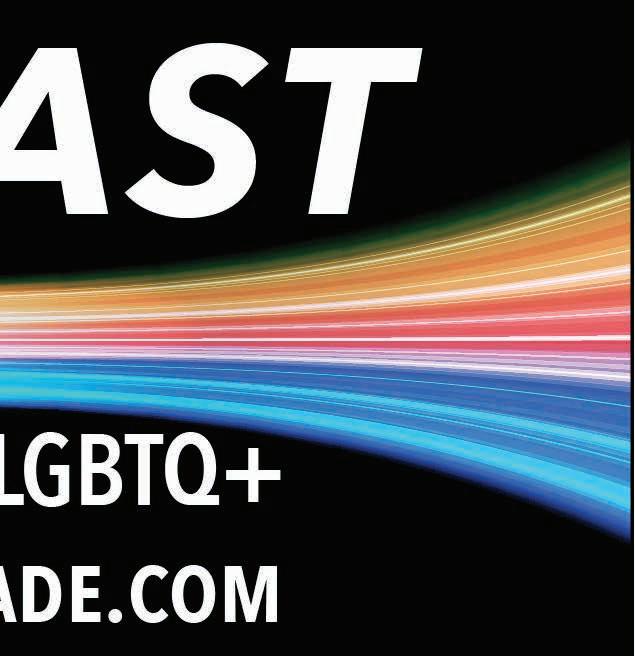
The ceremony will take place on Thursday, May 22 at The Abbey in WeHo with on-stage winner announcements and live performances
By ALEXANDER RODRIGUEZ
Late last year, L.A Blade founder and publisher Troy Masters passed away, leaving behind a legacy which has continued to thrive regardless of the current state of LGBTQ media. He not only founded the L.A Blade, but he also pushed for more diverse representation in LGBTQ media and created space to celebrate the accomplishments of those on the frontlines. Eight years ago, Masters started hosting the Best of LGBTQ L.A Awards.
This year, the LGBTQ community is facing some of the harshest anti-LGBTQ legislation on a local, state, national and global scale. Here in L.A, some community members were directly impacted by the January fires and many even lost their homes and businesses.
Despite all of this, the Blade — L.A’s premiere LGBTQ media outlet, the nation’s only LGBTQ Media member of the White House Press Corps and sister newspaper of the historic Washington Blade in D.C. — refuses to lose our spirit as we gear up to celebrate the Best of LGBTQ L.A on Thursday, May 22, at The Abbey in West Hollywood. This event will be presented in part by Visit West Hollywood.
The evening will be co-hosted by socialite and entertainment personality Billy Francesca and L.A Blade publisher Alexander Rodriguez, and will include performances from pop singer Robert Rene, Bring It To Brunch’s Cake Moss, viral influencer and comedian Allison Reese, and go-go and performer Prince Joshua, with a reading from West. Hollywood’s 4th Poet Laureate Brian Sonia-Wallace.
This year’s Local Hero Award will be presented to Pickle, the City of West Hollywood’s Drag Laureate, founder and executive director of Drag Arts Lab, for her activism, support of the queer community continued visibility.
It is both a scary and exciting time for our community. The excitement comes from our community’s resilience and refusal to stay silent. I am thrilled that we can continue to honor L.A’s choice for the best of the best this year in such a fun way. I am grateful for our readers coming together to pick the nominees and to come out and party. I am also thankful for our power partners for their support.
This year has already proven to be a true testament to the resilience and power of L.A’s queer community and we continue to celebrate and remain powerful.
Nominees across 38 categories were submitted by the community, recognizing some extraordinary pioneers of LGBTQ life in SoCal, businesses, agencies, political leaders, en-

tertainers and allies. The top nominee recipients in each category were added to the final ballot and over twenty thousand of our readers voted for the winner. We congratulate each of this year’s winners and final nominees.
“This is my first year being a part of the celebration and I could not be more excited to share a night of queer joy and celebration with my community,” said Gisselle Palomera, editor of the L.A Blade. “Events like these are crucial for us during these politically oppressive times to celebrate each other, ourselves and to plan for what’s to come next for us. Remembering that queer joy is our ultimate act of resistance, this year’s nominees either bring us that joy, or do everything in their power to protect it and they deserve our recognition.”
This year’s Best of LGBTQ L.A. nominees are:
Best Drag Performer
• Allusia
• Cake Moss
• Kyra Jete
• Lolita Colby
• Mauro Cuchi
• Salina EsTitties
Best Drag Show
• Beaches Drag Brunch
• Bring It To Brunch
• Brunch Service at The Abbey
• Fat Slut at Precinct LA
• Rocco’s Rocc-ettes Drag Brunch
Local Influencer of the Year
• Allison Reese
• Cosmo Melrose
• Eden and Jay (Preciosa Night)
• Jesse Sulli
• Rose Montoya
• Tony Moore
Best Musical Queer Artist
• Chappell Roan
• David Archuleta
• Doechii
• Frankie Grande
• Lil Nas X
Best LGBTQ Bar
• Akbar
• Hi-Tops
• Mickys
• Precinct
• Rocco’s Weho
• The Abbey
Best Happy Hour
• Bayou
• Fiesta Cantina
• Gym Bar
• Hi-Tops
• The Abbey
Go-Go of the Year
• Jake Mathew
• Jean Paul
• Josh Flores
• Prince Joshua
• Steven Dehler
• Victoria Shaw
Best Restaurant
• Bavel
• Bottega Louie
• Casita Del Campo
• Mas Mananitas
• Mi Corozon
• Ysabel
Best Radio or TV Station
•99.1 KLBP
•CHANNEL Q
•LatiNation
•Out TV
•REVRY
Best Cannabis Retailer/ Lounge
•Artist Tree Lounge
•CCA Silverlake
•Elevate
•Green Qween
•The Woods WeHo
Best LGBTQ Owned Business
•Andrew Christian
•Fan Daddies
•JJLA
•MISTR
•Underdog Bookstore
•Wildfang
Best LGBTQ Social Group
•Gay Men’s Chorus of Los Angeles
•Outloud Sports
•Pride Business Leaders
•T Boy Wrestling
•Unique Woman’s Coalition
•WeHo Dodgeball
Best House of Worship
•Congregation Kol Ami
•Founders Metropolitan
Community Church
Los Angeles
•Hollywood Boulevard Episcopal
•Hollywood United Methodist
•InVision Church Los Angeles
Activist of the Year
•Bamby Salcedo
•Chris Baldwin
•Edwin Soto
•Rose Montoya
•Tristan Schukraft
• Public Official of the Year
•Chelsea Byers
•Eunisses Hernandez
•John Erickson
•Lindsey Horvath
•Rick Chavez Zbur
•Ysabel Jurado
Best Local Pro Sports Team
•Angel City FC
•LA Chargers
•LA Dodgers
•LA Lakers
•LA Rams
•LA Sparks
•Los Angeles FC
Local Ally of the Year
•Abbe Land
•Andrew Solomon
•Chelsea Byers
•Natalie Sanchez
•Steve Galindo
Best Doctor/Medical Provider
•AIDS Healthcare Foundation
•APLA
•LA LGBT Center
•St. John’s Wellness
•UCLA Health - Williams Institute
Most LGBTQ-Friendly Workplace
•AIDS Healthcare Foundation
•City of West Hollywood
•JJLA
•Los Angeles LGBT Center
•Trader Joe’s
Non-Profit of the Year
•Equality California
•GLAAD
• Los Angeles Sisters of Perpetual Indulgence
•Project Angel Food
•The Queer 26
•Trans Lifeline
• Best Local Actor
•Cameron Esposito
•Jason Caceres
•Lena Waithe
•Rain Valdez
•Shaan Dasani
•Trevor Dow
Best Queer Art Space
•Circus of Books
•Junior High
•Museum of Latin American Art
•Superchief LA
•Tom of Finland House
Best Local Theatre
•Center Theatre Group
• Geffen Playhouse
•LA Opera
•Laguna Playhouse
•Pasadena Playhouse
Local Musical Artist of the Year
•Jordy
•Prince Joshua
•San Cha
•Tom Goss
•Vitamina C
Best LGBTQ Event
•Dinah Shore
•GLAAD Awards
•LA Opera Pride Night
•Out at the Fair
• Outloud Music Festival at Weho
Pride
Best Regional Pride
•DTLA Proud
•Hermosa Beach
•Long Beach Pride
•Palm Springs Pride
•WeHo Pride
Best News Source Ally
•CALÓ News
•Glendale News-Press
•KTLA News
•Los Angeles Times - De Los
•Spectrum News 1 SoCal
• Athlete of the Year
•Anthony Bowens
•Cece Telfer
•Christen Press
•Freddie Freeman
•Tom Daley
Best Promoter of the Year
•Beau Byron
•DJ Lez Ortiz
•Eden and Jay
•Paul Nicholls
•Stefano Rosso
•Tony Moore
LGBTQ Professional of the Year
•Abogada Jess
•Brian Holt
•Kate Sosin
•Oliver Alpuche
•Queen Victoria Ortega
•Tristan Schukraft
Best Bartender
•Addie Rae - Fiesta Cantina
•Hayden Bebber - Gym Bar
•Manny De Cielo - Schmitty’s
•Matt Stratman - Motherlode
•Max - Trunks
•Sumner Mormeneo - Beaches
Best DJ
•Cazwell
•DJ Lez Ortiz
•DJ Preciosa
•DJ SRO
•DJ Vick Jagger
•Paulo Ramirez
Best Local LGBTQ Podcast
•Cool Cool Cool
•Sloppy Seconds
•Sorry for Asking
•Today in Gay
•Very Delta
Best Salon/Spa
•Bautis LA
•Folklore Salon & Barber
•Project Q
•Serenity on Sunset
•Shorty’s Barber Shop
Best Music Venue
•The Disney Concert Hall
•The Hollywood Bowl
•The Roxy Theatre
•The Troubadour
•The Wiltern
Best Fitness/Workout Spot
•Barry’s
•Equinox on Sunset
•Gold’s Gym
•John Reed Fitness
•LA Fitness, Hollywood
Best Hotel
•Andaz
•Edition Hotel
•Hotel Ziggy
•Kimpton La Peer Hotel
•SoHo House
Best Tattoo Shop/Artist
•Ale from B36 Tattoo
•Cindy Ortega Tattoos
•June Bug Tattoos
•Plant Daddy Tattoos
•Salvavida Tattoos
With live performances, special presentations, the announcement of our winners and the electrifying buzz of recognition, it’s an event no LGBTQ Angeleno should miss — unless you’re looking to get some serious FOMO (Fear of Missing Out).
Join us on Thursday, May 22, as we raise a glass to the trailblazers and storytellers who illuminate our journeys and light the path towards a brighter future.
Let the L.A Blade Awards be your beacon of hope, where you show off your Pride, and make it an unforgettable night of belonging and radical queer joy.
Stay tuned for further updates on nominees, presenters, and exciting surprises ahead of the celebration.
In the meantime, mark your calendars and let’s prepare to celebrate the brilliance of the LGBTQ+ community at the 2025 Los Angeles Blade Best Of LGBTQ+ Los Angeles Awards! The Abbey | May 22, 2024 | 7:00 p.m.
By SUSAN HORNIK
If you haven’t seen the scene stealing Gideon Glick in Amazon Prime’s “Étoile,” run do not walk to your preferred streaming platform.
The talented actor — known for his work on the Broadway show, “Spring Awakening” and movies like, “Maestro”— is fantastic as Tobias, the quirky ballet choreographer.
“Tobias is a brilliant, complicated man who lives in his own world and sees the world very clearly in his head, but I don’t think other people see it as clearly as he does,” Glick told the Blade. “I don’t know if he’s as good as communicating within his head to others … he doesn’t read people very well, and I think he’s quite blunt, and he has a very hard time if something doesn’t align with what he sees.”
Glick is also one of the writers on the series.
After working with him on their previous hit show, “The Marvelous Mrs. Maisel,” co-creators/executive producers Amy Sherman-Palladino and Daniel Palladino hired Glick as a scribe, after he expressed a strong interest in writing.
“The funny thing about Gideon was we started to create this character, this weird, semi on the spectrum, sort of strange choreographer, and we would find ourselves talking about him and then just looking at Gideon,” said Amy Sherman-Palladino at a recent press event.
“And after a while, Gideon’s like ‘why are you looking at me like every five seconds!?’ And we realized we were creating this character, and it was Gideon! In the writer’s room, about halfway through it, we said to him, ‘is it something you might wanna do?’”
Glick had that sense this was going to happen.
“We have a similar sense of humor. And we just got along really well….We were about a month into the writers’ room, and every time they talked about the character, they kept pointing to me,” he noted.
“But I didn’t know it was me. And everybody kept looking around and thought, ‘How strange is this?’ But then when they offered it to me, you know, it was a beautiful synthesis. So we kind of came up with it together, which I feel really, really lucky about.”
Added Daniel Palladino: “Gideon has his own odd, peculiar way, and it’s unmatched with anybody else.” Glick is thrilled and deeply touched by his relationship with the Palladinos. “It’s been a very remarkable thing
for me. I think when you have reverence for people, and when they respect you back and believe in you, you start to believe in yourself. And so, that started to happen to me when I started working with them, and it helped me cultivate my own career and expand on it.”
To have that level of confidence means everything to Glick.
“I think especially being in a gay community, finding people that believe in you and bolster you — you don’t let them go. Ever, ever, ever.”
As an actor who has a disability in his own life, Glick resonates with Tobias’s uniqueness.
“I was born with one ear. My right ear is completely fake. It’s made out of my rib. And hearing impaired on my left side too … I’ve had to embrace the fact that I’m different from a very, very, very early age. I also came out when I was 12. So at that point, it was kind of on the vanguard. I mean people come out all the time now. But back then, that was unique.”
He continued: “I think I’ve learned very early on that what makes you unique is your special power. And I think with Tobias, he thinks very differently than everybody else. And he’s very strident and kind of blunt about it. But he’s a brilliant man. And when it actually gets actualized, you can see the tangible beauty that he’s creating.”
Having come from a musical theater background, Glick was fascinated by the plethora of dance scenes being filmed.
“I grew up doing plays and musicals, and I got to do ‘Maestro’ and learn a little bit about classical music because of that. But this felt like the final great piece of art that I didn’t know about, and I came away knowing a lot. Especially because of the writing component.”
If you have binged all the episodes, you know that Tobias’s relationship with French ballet dancer Gabin (Ivan du Pontavice) slowly deepens into a tender, romantic connection.
“Ivan is an extraordinary actor. He’s very alive. He’s very thoughtful. I think of us as an odd couple. We’re very different characters. Gabin is a very self interested, braggadocio type. Tobias is an introvert, lives in his own world, very blunt. Two people that don’t necessarily consider the other and are not necessarily accountable to other people. And within the relationship, they learn about that, and they learn about empathy, and it’s a re-

ally beautiful, beautiful relationship, and the way that it blossoms, and then both characters blossom. It’s been a thrill to be able to perform.”
When Glick is not working, he is hard at work on his new nonprofit, the Blue Roses project.
“It’s a queer play development lab that is based in New Orleans. I co-founded it with one of my dearest friends, James McBride. Our mission is to find unproduced queer playwrights, match them with established directors, and integrate artists from outside of New Orleans with artists inside of New Orleans and tell queer stories in the South. So that’s where I’ve been directing my energy toward and we’re actually just about to launch.”
Especially with this administration, queer people are not being supported in the arts, Glick acknowledged.
“We are hoping to fill that gap in some way and offer help. I think also within the theater community, new play development, people don’t have money anymore, so we would like to create a space right now.”

By JOHN PAUL KING
Back in 1963, there really wasn’t such a thing as “Queer Cinema.”
Of course there had been plenty of movies made by queer people, even inside Hollywood’s tightly regulated studio system; artists like George Cukor and Vincente Minnelli brought a queer eye and sensibility to their work, even if they couldn’t come right out and say so, and became fluent in a “coded” language of filmmaking that could be deciphered by audience members “in the know,” while everyone else – including the censors – remained mostly oblivious.

Yes, the movie industry was adapting to the demands of a generation that had grown increasingly countercultural in its priorities, and topics that had once been taboo on the big screen, including the more or less open depiction of queerness, were suddenly fair game. But even so, you’d be hard-pressed to find examples of movies where being queer was not tied to shame, stigma, and a certain social ostracization that remained, for the most part, a fact of life. Hollywood may have been ready to openly put queer people on the screen, but the existence it portrayed for them could hardly have been described as happy. Yet this was the setting in which a Manhattan artist
named James Bidgood began a filmmaking project that would dominate his life for the next several years and eventually become a seminal influence on queer cinema and queer iconography in general – all executed, with the exception of an ambitious climactic sequence, in a cramped New York apartment utilizing elaborate handmade sets and costumes, which would define an entire queer aesthetic for decades to come. Though disputes with the film’s financiers would eventually cause him to remove his name from the project, resulting in years of anonymity before finally being credited with his work, he has now taken his rightful place as one of the architects of modern queer sensibility.
The movie he made – “Pink Narcissus,” which has been newly restored in glistening 4K glory and is currently being screened in theaters across the U.S. after an April premiere at Manhattan’s Newfest – didn’t exactly take the world by storm. When it finally premiered on “arthouse” theater screens in 1971, it was slammed by mainstream critics (like Vincent Canby of the New York Times, who compared it to “a homemade Mardi Gras drag outfit” as if that were a bad thing) and largely ignored, even as a new spirit of creative freedom was bringing more and more visibility to openly queer content. A screening at 1984’s “Gay Film Festival” reintroduced it to an audience that was finally ready to embrace its feverishly stylized, near-surreal fantasia on gay obsessions, and since then it has loomed large in the queer cultural imagination, providing clear and directly attributable influence over the entire queer visual lexicon that has developed in its wake – even if it has remained widely unseen among all but the most dedicated queer cinema buffs.
With a running time of little more than an hour, it’s not the kind of movie that can be described in terms of a cohesive linear plot. “Official” synopsis efforts have typically framed it as the story of a young male hustler who, while waiting for a call from a favorite “trick,” fantasizes about various erotic scenarios in his spangled and bejeweled apartment. But since it is a film with no spoken dialogue that takes place largely in the imagination of its central character, it’s difficult to place a definitive construct upon it. What’s certainly true is that it presents a series of daydreamed fantasies in which its protagonist – played by sultry lipped Bobby Kendall, a teen runaway who had become a model for Bidgood’s “physique” photography and also his roommate and (probably) on-and-off lover – imagines himself in various scenarios, including as a matador facing a bull (who is really a leather-clad motorcyclist in a public restroom), a Roman slave thrown to the mercy and pleasure of his emperor, and both a Sheik and a harem boy obsessed with a well-endowed exotic male belly dancer. Eventually, the young man’s thoughts venture into the streets outside, where he is immersed in a seedy,
sordid world of sexual obsession and degradation, before facing a final fantasy in which, as an “innocent” nymph in the woods (perhaps the human embodiment of the film’s titular butterfly), he is engulfed and consumed by his own sexual nature, only to be reborn in his apartment to face the inevitable transformation from “twink” to “trick” that presumably awaits all gay men who dedicate their lives to the transgressive sexual desires that drive them.
All of that, to modern sensibilities, might read like a series of stereotypical and vaguely demeaning tropes symbolizing little more than the degradation that comes of a hedonistic lifestyle in which pleasure and punishment are intertwined with all the surety of fate; but what sets “Pink Narcissus” apart from so many early examples of queer cinema is that, despite its reliance on the often-campy trappings of “rough trade” and the performative “tragedy” of its overall arc from youth and beauty to age and corruption, it exudes an unmistakable attitude of joy.
We’re talking about the joy of sensuality, the joy of self-acceptance, the joy of partaking in a life that calls to us despite the restrictions of societal “normality” which would have us deny ourselves such pleasures; in short, the joy of being alive - something to which every living being theoretically has the right, but which for queer people is all-too-often quashed under the mountain of disapproval and shame imposed upon them by a heteronormative society and its judgments. Considering that it was made in a time when the queer presence in film was mostly limited to victimhood or ridicule, it feels as much an act of resistance as it does a celebration of queer sexuality; seen in a cultural climate like today’s, when joy itself seems as much under attack as sexuality, identity, or any of the other personal traits which separate us from the supposed “norm” imposed by prevailing political attitudes, it becomes an almost radical act, a declaration of independence asserting our natural right to be who we are and like what we like.
That’s why “Pink Narcissus” looms so large in the landscape of queer filmmaking. It’s the irrefutable evidence of queer joy singing out to us from a time when it could only exist in our most private of moments; it’s unapologetically campy, over the top in its theatricality, and almost comically blatant in its prurient obsession with the anatomy of the anonymous male models who make up most of its cast (and Kendall, who seems to dress himself in various outfits only to undress for the next erotic daydream), but it feels like a thumb on the nose to anyone who might shame us for for celebrating our sexual nature, which Bidgood’s movie unequivocally does.
Restored to the vivid (and luridly colorful) splendor of its original 8mm format, “Pink Narcissus” is currently touring the country on a series of limited screenings; VOD streaming will be available soon, check the Strand Releasing website for more information.


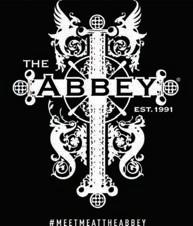
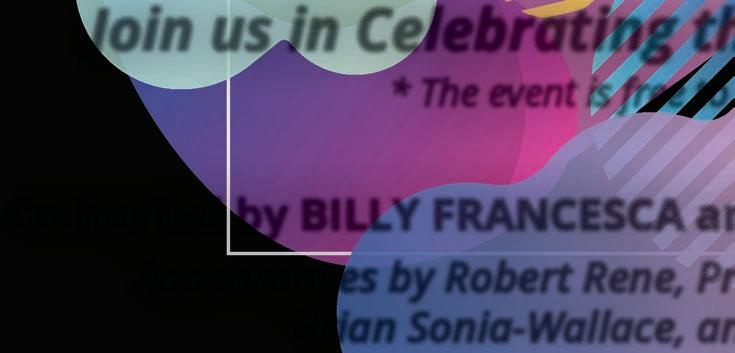




By GREGG SHAPIRO
I’ve always prided myself on being the kind of music consumer who purchased music on impulse. When I stumbled across “Things Here Are Different,” Jill Sobule’s 1990 MCA Records debut album on vinyl in a favorite Chicago record store, I bought it without knowing anything about her. This was at a time when we didn’t have our phones in our pockets to search for information about the artist on the internet. The LP stayed in my collection until, as vinyl was falling out of fashion, I replaced it with a CD a few years later.
Early in my career as an entertainment journalist, I received a promo copy of Jill’s eponymous 1995 Atlantic Records album. That year, Atlantic Records was one of the labels at the forefront of signing and heavily promoting queer artists, including Melissa Ferrick and Extra Fancy, and its roster included the self-titled album by Jill. It was a smart move, as the single “I Kissed A Girl” became a hit on radio and its accompanying video (featuring Fabio!) was in heavy rotation on MTV (when they still played videos).
Unfortunately for Jill, she was a victim of record label missteps. When 1997’s wonderful “Happy Town” failed to repeat the success, Atlantic dumped her. That was Atlantic’s loss, because her next album, the superb “Pink Pearl” contained “Heroes” and “Mexican Wrestler,” two of her most beloved songs. Sadly, Beyond Music, the label that released that album ceased to exist after just a few years. To her credit, the savvy Jill had also started independently releasing music (2004’s “The Folk Years”). That was a smart move because her next major-label release, the brilliant “Underdog Victorious” on Artemis Records, met a similar fate when that label folded.
Lost Things,” “Where Do I Begin,” “Almost Great,” and “Big Shoes,” made her songs as personal as they were universal, elicited genuine affection and concern from her devoted fans.
While she was a consummate songwriter, Jill also felt equally comfortable covering songs made famous by others, including “Just A Little Lovin’” (on the 2000 Dusty Springfield tribute album “Forever Dusty”) and “Stoned Soul Picnic” (from the 1997 Laura Nyro tribute album “Time and Love”). Jill also didn’t shy away from political subject matter in her music with “Resistance Song,” “Soldiers of Christ,” “Attic,” “Heroes,” “Under the Disco Ball,” and the incredible “America Back” as pr ime examples.

With her 2009 album “California Years,” Jill launched her own indie label, Pinko Records, on which she would release two more outstanding full-length discs, 2014’s “Dottie’s Charms” (on which she collaborated with some of her favorite writers, including David Hadju, Rick Moody, Mary Jo Salter, and Jonathan Lethem), and 2018’s stunning “Nostalgia Kills.” Jill’s cover of the late Warren Zevon’s “Don’t Let Us Get Sick” on “Nostalgia Kills” was particularly poignant as she had toured with him as an opening act.
Jill was a road warrior, constantly on tour, and her live shows were something to behold. My first interview with Jill took place at the Double Door in Chicago in early August of 1995, when she was the opening act for legendary punk band X. She had thrown her back out the previous day and was diagnosed with a herniated disc. To be comfortable, she was lying down on a fabulous-‘50s sofa. “I feel like I’m at my shrink’s,” she said to me, “Do you want me to talk about my mother?”
That sense of humor, which permeated and enriched her music, was one of many reasons to love Jill. I was privileged to interview her for seven of her albums. Everything you would want to know about her was right there in her honest lyrics, in which she balanced her distinctive brand of humor with serious subject matter. Drawing on her life experiences in songs such as “Bitter,” “Underachiever,” “One of These Days,” “Freshman,” “Jetpack,” “Nothing To Prove,” “Forbidden Thoughts of Youth,” “Island of
Here’s something else worth mentioning about Jill. She was known for collaboration skills. As a songwriter, she maintained a multi-year creative partnership with Robin Eaton (“I Kissed A Girl” and many others), as well as Richard Barone, the gay frontman of the renowned band The Bongos. Jill’s history with Barone includes performing together at a queer Octoberfest event in Chicago in 1996. Writer and comedian Julie Sweeney, of “SNL” and “Work in Progress” fame was another Chicago collaborator with Sobule (Sweeney lives in a Chicago suburb), where they frequently performed their delightful “The Jill and Julia Show.” John Doe, of the aforementioned band X, also collaborated with Jill in the studio (“Tomorrow Is Breaking” from “Nostalgia Kills”), as well as in live performances.
On a very personal note, in 2019, when I was in the process of arranging a reading at the fabulous NYC gay bookstore Bureau of General Services – Queer Division, I reached out to Jill and asked her if she would like to be on the bill with me. We alternated performing; I would read a couple of poems, and Jill would sing a couple of songs. She even set one of my poems to music, on the spot.
Jill had an abundance of talent, and when she turned her attention to musical theater, it paid off in a big way. Her stage musical “F*ck 7th Grade,” a theatrical piece that seemed like the next logical step in her career, had its premiere at Pittsburgh’s City Theatre in the fall of 2020, during the height of the pandemic. The unique staging (an outdoor drive-in stage at which audience members watched from their cars) was truly inspired. “F*ck 7th Grade” went on to become a New York Times Critic’s pick, as well as earning a Drama Desk nomination.
In honor of the 30th anniversary of Jill’s eponymous 1995 album, reissue label Rhino Records is re-releasing it on red vinyl. Jill and I had been emailing each other to arrange a time for an interview. We even had a date on the books for th e third week of May. When she died in a house fire in Minnesota on May 1 at age 66, Jill received mentions on network and cable news shows. She was showered with attention from major news outlets, including obits in the New York Times and Rolling Stone (but not Pitchfork, who couldn’t be bothered to review her music when she was alive). Is it wrong to think that if she’d gotten this much attention when she was alive she could have been as big as Taylor Swift? I don’t think so.


